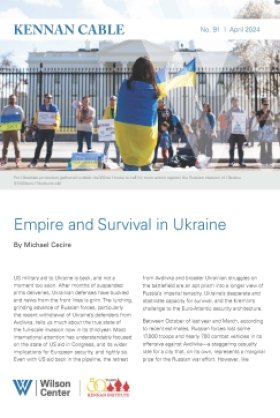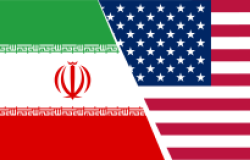The Evolution of NATO: the 2010 Strategic Concept and Beyond
Twenty years after the end of the Cold War, the North Atlantic Treaty Organization (NATO) has grown in size, but in many other ways has not fully adapted to the post-Cold War world. The 2010 Strategic Concept attempts to address the increasingly complex threats facing the allies, including nuclear terrorism, cyber crime, and global climate change, as well as the institutional changes necessary to maintain NATO's relevance in the 21st Century. This conference explored this new security environment. Participants offered assessments of the new Strategic Concept, which was released on May 17, 2010.
Overview
Twenty years after the end of the Cold War, the North Atlantic Treaty Organization (NATO) has grown in size, but in many other ways has not fully adapted to the post-Cold War world. The 2010 Strategic Concept attempts to address the increasingly complex threats facing the allies, including nuclear terrorism, cyber crime, and global climate change, as well as the institutional changes necessary to maintain NATO's relevance in the 21st Century. This conference explored this new security environment. Participants offered assessments of the new Strategic Concept, which was released on May 17, 2010.
The first panel offered views on NATO's mission from both sides of the Atlantic. Former US ambassador to NATO, Kurt Volker, began by stating that at the end of the Cold War in 1989 this previously successful institution was "shocked" first by the collapse of the bipolar world and subsequently by the September 2001 terrorist attacks. NATO was unprepared to deal with either event. Nevertheless, NATO has been more active since 1995 than it had been since its inception. For the first time, NATO assumed operational roles (beginning with the intervention in Bosnia-Herzegovina), built partnerships with non-member countries (such as Georgia, Russia and Ukraine) and accepted twelve new members. Today, leaders must explain and justify the purpose and scope of NATO's activities in new ways. Jamie Shea, director of policy planning in the Office of the NATO Secretary General, pointed out that the group of experts who drafted the new Strategic Concept sought bridge the divides that have appeared within the alliance by re-affirming the core values of NATO, such as the collective defense commitment outlined in Article 5, by emphasizing a continued reliance on a mix on nuclear and conventional forces, by reasserting NATO's "open-door policy," and by confirming existing partnerships with non-member states and other international institutions. He noted that NATO faces a new reality in which it "needs to be a lot more things to a lot more people today to continue to have the commitment of our member states."
The second panel addressed a series of non-traditional security challenges facing the alliance. Peter Liotta, of Salve Regina University in Newport, Rhode Island, led the debate about the new security environment by presenting a series of maps. Dramatic changes in the contours of these maps, due to rapid population growth, urbanization, drastic differences in levels of development, desertification, and the melting of the polar ice caps, create an acute need for a shift in "mental maps," and ways of thinking about risks and vulnerabilities. Current Woodrow Wilson Center Fellow Stacy Closson discussed energy security both as a risk and as an issue that sharpens the divides between NATO allies. Specifically, she explained that while some see Russia as an "energy empire," which is using energy as a weapon, others view Moscow as simply doing business, according to market principles. Her research shows that, despite fears expressed by the Central European and the Baltic states, Russia has not been particularly effective at wielding energy policy as a weapon, and has clear interests in providing an uninterrupted supply of energy to its NATO partners. Furthermore, changes in the market (such as increased use of renewable energy sources, diversification in sources of liquefied natural gas and other alternative energy sources) are weakening Russia's position as the primary energy supplier to Europe. Marko Mihkelson, chair of the EU Affairs Committee and member of the Foreign Affairs Committee of the Estonian Parliament, discussed the affects of the April 2007 cyber attack on Estonia. He recounted how the cyber attack crippled various aspects of Estonia's infrastructure, including official government websites, banking, and external communication. Mihkelson characterized the attack as having "very precise timing" and being "unusually well-coordinated and [requiring] resources not available to common people." He proposed the following pillars as the foundation for future cyber security policy: increasing awareness of cyber security; determining a common definition of the internet; developing a more unified cyber culture online; and building public-private partnerships at the international level to better defend cyberspace and respond to potential attacks. The final speaker on this panel addressed the issues of nuclear weapons and non-proliferation.
Kestutis Paulauskas, lecturer at the Institute of International Relations and Political Science at Vilnius University, noted that NATO today, with respect to nuclear weapons, has almost completely disarmed, compared with the number of weapons and their delivery systems which the alliance possessed during the Cold War. Rapid disarmament, however, has failed to prevent proliferation: although there are now far fewer nuclear weapons, many more countries possess such arms (or are on the brink of acquiring them.) Debates continue regarding the necessity of NATO's nuclear weapons, given that the security climate has changed dramatically since 1999. Paulauskas suggested that NATO's nuclear weapons remain necessary as a deterrent, especially given some countries' tireless pursuit of nuclear weapons. By contrast, the speaker argued, Russia's continued reliance on nuclear weapons does not pose a major threat to its neighbors, but is fed in part by Moscow's desire to "preserve the remnants of their great power feeling."
The luncheon speaker, Janis Eichmanis, the Latvian ambassador to NATO, highlighted the fact that the complexity characteristic of the modern world necessitates a comprehensive approach by NATO and other international organizations. To that end, the ambassador praised the renewed leadership role assumed by the United States in the international arena. He also noted that the existing and emerging challenges can be addressed effectively only through collaboration between states. In the speaker's view, various elements should guide NATO's evolution, including: a continued commitment to Article 5; initiatives aimed at augmenting members' defense capabilities; and preventive engagement to counteract fragile and failing states. In short, Ambassador Eichmanis suggested that the alliance become "smarter, more agile, more comprehensive, and more strategic."
The keynote speaker, Dr. Madeleine Albright, former U.S. Secretary of State and chair of the NATO Group of Experts that drafted the 2010 Strategic Concept, explained that the recommendations issued by the Group were guided by NATO's ongoing duty to guarantee the safety and security of its members and by its responsibility to engage with countries outside its borders. While reaffirming the centrality of collective defense to NATO's identity and purpose, the Secretary argued that "these measures are not sufficient" to counter diverse threats the alliance is likely to face through 2020. To this end, the Experts' report contains several recommendations, including the need for NATO to improve its ability to engage in partnerships with other countries. Albright cautioned against NATO "going everywhere and doing everything." Instead, the Group's report suggested that NATO devise criteria for committing resources to operations outside its borders. She also advocated the increased use of consultations among members under Article 4 of the North Atlantic Treaty and improved public diplomacy efforts to ensure the alliance's long-term financial and political viability.
The final panel addressed how the Strategic Concept will help to build NATO's institutional capacity as an actor on the world stage. Gulnur Aybet of the University of Kent began by discussing the purpose and challenges encountered by past strategic concepts as well as those likely to be faced by the latest iteration of the document. Aybet argued that while NATO was able to execute effectively early post-Cold War grand strategy, in the aftermath of 9/11 the shift from collective security to collective defense had presented a challenge to the alliance. She identified operationalization as one of the main challenges to implementing the Group of Experts' recommendations, and proposed that NATO take Russia's proposals seriously; clarify the guidelines governing NATO's out-of-area engagement; make better use of Article 4; and focus on public diplomacy in order to ensure strong public support for alliance endeavors.
Christopher Chivvis of RAND commented on NATO's future role in the European security architecture. Chivvis posited that the existing security infrastructure ably addresses transnational threats, fragile states in Europe and on its periphery, and the prevention of conventional and nuclear war. However, by doing so, NATO isolates Russia, which limits the international community's ability to deal with the above issues comprehensively. Therefore, Chivvis suggested that the main challenge is to integrate Russia into the present security architecture, which is a proposition not entirely devoid of controversy. Nevertheless, recent developments in Russian foreign policy seem to suggest that Moscow is considering adopting a more benign view of NATO. If true, this has the potential to allow Russia and NATO to address issues of mutual interest in the long term.
Igor Zevelev, of the MacArthur Foundation's Moscow office, provided an overview of the recent positive developments in NATO-Russia relations, and suggested steps to improve ties. The recent decision to label Russia a "stakeholder" in European and international security, Moscow's call for a new chapter in NATO-Russia relations, and the Group of Experts' identification of concrete areas of cooperation with Moscow were highlighted as positive steps. The speaker highlighted the construction of a joint air traffic control system as an area of cooperation between Moscow and Brussels. Zevelev expressed concern over the planned deployment of elements of European ballistic missile defense in countries bordering Russia. Thus, although NATO has expressed an interest in improving relations with Russia, Moscow is hesitant to engage pending stylistic and contextual changes in Brussels' approach.
The conference was closed by Stephen J. Flanagan, senior vice president and Henry A. Kissinger Chair at CSIS who discussed several recommendations of the Group of Experts' report that dealt with the institutional reform of NATO. Specifically, Flanagan argued that the threats now facing NATO are "gray area threats" that are likely to originate "from the south and the east, from wider global security problems." In order to better address such novel threats, Flanagan recommended that the alliance streamline its decision-making and adopt an integrated civil-military approach to its command and control structures. Echoing the recommendation of the Group of Experts that NATO increase consultations under Article 4, Flanagan suggested the alliance adopt this mechanism in order to stem the security concerns of East European and Baltic states, as well as to augment the alliance's response capabilities to a potential security or environmental challenge. The speaker closed by re-affirming the importance of maintaining existing ties and engaging in new partnerships to NATO's mission of protecting its members and ensuring its interests.
Drafted by Elizabeth Zolotukhina, Program Assistant, European Studies
Christian Ostermann, Director, European Studies
Speakers
Michael Van Dusen
Former Senior Advisor to the President for Alumni Relations, Woodrow Wilson Center; Former Executive Vice President and Chief Operating Officer, Woodrow Wilson Center

Kurt Volker
Jamie Shea
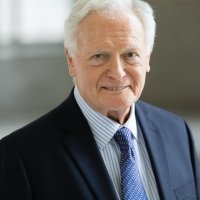
Samuel Wells
Former Deputy and Associate Director, Woodrow Wilson Center; Former Director, West European Studies Program, Woodrow Wilson Center
Peter H. Liotta
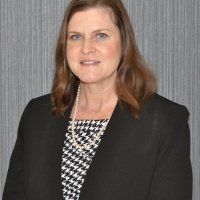
Stacy R. Closson
National Intelligence University
Marko Mihkelson
Kestutis Paulauskas
Janis Eichmanis
Peter Blumbergs
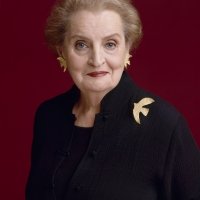
Madeleine Albright
U.S. Secretary of State (1997-2001)
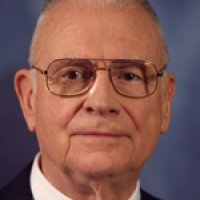
Lee H. Hamilton
Founder, the Center on Congress at Indiana University; Vice Chair, 9/11 Commission
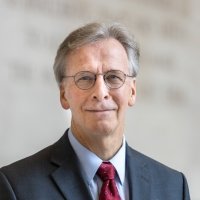
Robert S. Litwak
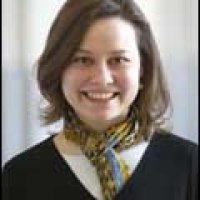
Nida Gelazis
Gulnur Aybet
Head of Department, Political Science and International Relations, Bahçeşehir University
Christopher Chivvis
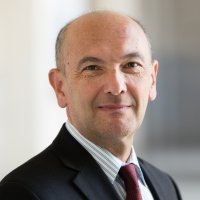
Igor Zevelev
Former Professor at George Marshall European Center for Security Studies; Former Director, MacArthur Foundation, Moscow Office
Stephen J. Flanagan
Hosted By

Global Europe Program
The Global Europe Program is focused on Europe’s capabilities, and how it engages on critical global issues. We investigate European approaches to critical global issues. We examine Europe’s relations with Russia and Eurasia, China and the Indo-Pacific, the Middle East and Africa. Our initiatives include “Ukraine in Europe” – an examination of what it will take to make Ukraine’s European future a reality. But we also examine the role of NATO, the European Union and the OSCE, Europe’s energy security, transatlantic trade disputes, and challenges to democracy. The Global Europe Program’s staff, scholars-in-residence, and Global Fellows participate in seminars, policy study groups, and international conferences to provide analytical recommendations to policy makers and the media. Read more

Cold War International History Project
The Cold War International History Project supports the full and prompt release of historical materials by governments on all sides of the Cold War. Through an award winning Digital Archive, the Project allows scholars, journalists, students, and the interested public to reassess the Cold War and its many contemporary legacies. It is part of the Wilson Center's History and Public Policy Program. Read more

History and Public Policy Program
The History and Public Policy Program makes public the primary source record of 20th and 21st century international history from repositories around the world, facilitates scholarship based on those records, and uses these materials to provide context for classroom, public, and policy debates on global affairs. Read more
Thank you for your interest in this event. Please send any feedback or questions to our Events staff.

